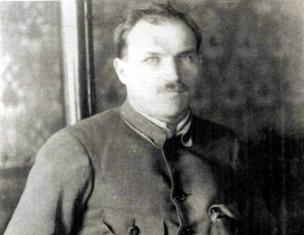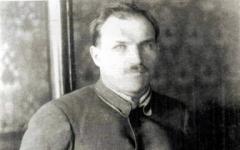Duality of desires (simultaneous coexistence in us of opposite – ambivalent – desires).
- This is the norm.
People are not robots. They behave contradictory. Evil, hurtful words (thoughts) and sincere affection, love towards the same person (watch yourself!). An absolutely sincere promise and the circumstances that “just so happen” that the promise is not fulfilled.
No matter how we view this from a moral point of view, inconsistency of desires is a reality that is characteristic of all people. Ignoring it is like ignoring the fact that the pan is hot. And you will get burned, and the cause of the burn is you, and not the frying pan.
- As a rule, if you want something, you also have the opposite desire.
I want to sleep, how much I sleep - I want a stable job, salary and prospects
Want strong man- I want freedom
I want the child to be healthy - I want him to need me and for us to be closer
I want to spend money right now - I want to save it.
I want to tell a lie - I want to respect myself for my honesty (or not be afraid of being exposed).
I want to be only with him (her)! - What, there will be no one else in my life?
I want to repay my debt! - I want to keep it for myself!
I want to be slimmer - I want to eat whatever and as much as I want (or - calm down, or...)
- It can be realized. Or (especially if it is considered bad, unacceptable) not allowed into consciousness. Regardless of this, it influences actions.
Always, if you want something, look for the opposite desire. You will find it.
I want to be rich - I want... no, there is no poverty... - DON’T STRESS! :) (This is 100%).
I want to be happy! – I want to be taken care of all my life, like a baby... and for this, everything will somehow not work out for me... well, feel sorry for me!!!
I want to be healthy! – See above (“I’m the sickest person in the world! Don’t you have another jar of jam?!”).
I want a reliable (i.e. predictable:)) person next to me - I want it to not be boring...
- When we do not recognize the existence of some of our desires because we consider them “bad,” we lose control over them (we are not aware).
And then we consciously do one thing, and unconsciously the exact opposite. Classic: do homework with the TV on (I want to concentrate - I want to relax).
Or: in the prime of life, work hard, but for a small salary (I want to earn money - I want to avoid responsibility, change and associated risks). Here I do not mean a conscious choice related to vocation, family interests, etc.
Or - a person who does not admit the thought that he likes to be AND cruel (“I want only the best for my child!”) may not realize (and not control!!!) the obvious excessiveness of his aggression with help in doing homework or in other educational situations.
A fighter for morality who pursues debauchery, heading the committee to combat pornography and by the sweat of his brow 8 hours a day is forced to:) watch erotic films and magazines.
In a word, either 1) what we REALLY want more happens anyway (but at the same time we do not manage our lives, and often we are not even aware of what we are really doing),
or 2) “press on the gas and brake at the same time”! As a result, neither one nor the other desire is actually realized, and the relationship “breaks.”
- There is no point in scolding or condemning yourself for your desires. They are all human, inherent in all people. Any desire “wants” something good and important for you.
Cruelty - to ACHIEVE, laziness - to protect from overload, meanness - to achieve an important goal at ANY cost (politicians also call this “pragmatism” :)).
This is not at all about “justifying” yourself for everything.
Exactly the opposite.
An adult treats all his desires with attention and respect. Playing war with yourself is stupid and destructive.
An adult, respecting all his desires, CHOOSE.
- As a rule, there is no ideal choice. Any choice necessarily entails some “pros” and some “cons”. RESPONSIBILITY means not “blaming” the negative consequences of your choices on anyone.
Do not look for those to blame, do not refer to circumstances, but deal with the consequences. Analyzing the reasons to make the next choice better.
GUILT is always a search for “who is bad?”
RESPONSIBILITY is the question “what to do in this situation?”
So, a mature person KNOWS that both he and those around him have CONFLICTING DESIRE.
He is NOT AFRAID of any desires, treating them carefully and with respect.
If possible, he consciously CHOOSE which of the conflicting desires to follow. Simply because an informed choice is often a smart one. And the habit of following conscious choice allows you to achieve your goals more accurately (Genghis Khan’s principle: “If you are afraid, don’t do it; if you do, don’t be afraid!”). This is FREEDOM.
A teenager often acts “FREELY”, but deals with the consequences MOM. This is called: “TEENAGE COMPLEX”: I don’t owe anyone anything, but you, of course, owe me! :)
FREEDOM is where RESPONSIBILITY is: understanding the inevitability of the negative consequences of any choice and the willingness to face them. Without blaming anyone (including yourself), analyzing and drawing conclusions. Perhaps by seeking support, but by INDEPENDENTLY resolving the negative consequences of your choices.
INDEPENDENCE – FREEDOM to make CHOICES, i.e. make unobvious decisions and bear RESPONSIBILITY for their consequences.
We expect the baby to be obedient. We expect adults to be independent. A person cannot be obedient and independent at the same time.
Oh, as one smart client in his Serious Office told me quite unexpectedly at this point in the conversation: so you are talking against the state. I had to agree with him: well... perhaps this is objectively against what is pouring out of our state TV... - About freedom, but about responsibility...
I believe that we all came into this world for a reason and that we all have some significance in it. I truly believe that we are all gifted with unique and unique talents. The realization of our talents is much more important than we ourselves realize.
First, I'll tell you my story.
Last year I was overwhelmed by the number of things to do because I was chasing my dreams of money and “success”. I didn’t even remember why I needed it. Luckily for me, I met Jim (not his real name). Jim achieved the monetary success I so desired. He was financially independent, he successfully ran several projects, he had real estate in many countries, he could afford all the luxuries that money could buy.
He was able to achieve all this through hard work, consistency and responsibility! But Jim was not happy. He had no free time to enjoy his wealth. He wanted to have a family. He wanted peace. He wanted to live his own life... but he couldn't afford it. He had too many responsibilities, without fulfilling which he would have lost a lot. He had a lot to protect. Jim spent years building his castle and now that the construction is complete, he spends all his time ensuring that the castle does not collapse under the influence of external factors.
Meeting Jim opened my eyes to my life and forced me to change it. His words brought me to my senses. It suddenly became clear to me that “I don’t want to spend the next 10 years of my life chasing money, only to then discover my emotional, mental and spiritual development at the same level as it was at the beginning of the chase.” Brakes squealed as my pursuit stalled and then was put aside. I spent the next two months re-evaluating my life goals.
The following questions came to my mind: What am I chasing? Why am I doing this? What is my true purpose? Why am I here?
While reading Michael Gerber's book E-Myth: Why Most Small Businesses Don't Work, I found myself crying. In that chapter, the author asked readers to complete visualization exercises. Following his instructions, you clearly picture the day of your funeral in your mind. What kind of eulogy do you want for yourself? What will be your lifetime achievements? What will the end of your life mean to you? highest value? Is this what you are doing now?
I started writing. I started making a list of what is really important to me. I wrote down everything I wanted to do. I reconsidered my priorities. For myself, I decided that all the steps I took should lead to achieving a goal that aligns with my personal values and is what I really want from life. With each new opportunity, I must determine whether this opportunity is suitable for achieving my ultimate goal. No matter how much money a new opportunity brings me, if it goes against my life goals, I won't use it. I formulated my goal as follows:
To inspire, encourage and motivate people to live happier, more meaningful lives.
Here are some tasks that are particularly significant to me:
- For me, agreement with myself, self-realization and a feeling of happiness are of great importance;
- The greatest value for me is serious relationships with people, the ability to build real relationships at a deep level;
- I will be financially independent and manage my time and location. I want to work only on those projects and implement only those ideas that I like. My financial situation will not conflict with my values and life goals;
- I will travel and live in various parts Sveta. Having become acquainted with all kinds of cultures, I will document them in photographs and share my impressions with others;
- I'll buy my mom a house in Vancouver with a pool in the backyard. This is her dream and I want to make it come true;
- Family is important to me. I want my husband and I to have a strong and loving relationship.
- I try to live every day like this life to the fullest as if this is my last day.
15 questions to help you understand your life goals.
Listing these questions can help you discover your life goals. They are designed to help you mentally formulate the tasks that you must complete during your life.
Simple instructions:
- Take several sheets of writing paper;
- Find a place where no one will disturb you. Turn off your mobile phone;
- Write down the answers to all questions. Write down the first thing that comes to mind. Write without making any edits. Answer all questions. It is more important to write down all the answers rather than just think about them;
- Write quickly. Give yourself no more than 60 seconds for each question. It’s better if it takes you less than 30 seconds;
- Be honest. Nobody will read this. It is very important to write without making changes;
- Enjoy what you are doing and smile while you do it.
15 questions:
- What makes you smile? (Occupation, people, events, hobbies, projects, etc.)
- What have you enjoyed doing in the past? What do you like to do now?
- When doing what kind of work can you lose track of time?
- What makes you proud of yourself?
- Who is your biggest inspiration? (Anyone you know or don't know personally. Your family members, friends, writers, artists, political figures, etc.). What qualities do each of your inspirations serve as an example to you?
- What are you particularly good at? (Your skills, abilities and talents).
- What kind of help do people usually turn to you for?
- If you had to teach someone something, what would you teach?
- What would you regret in your life? (Imperfect actions, lack of something).
- Imagine that you are already 90 years old. You are sitting in a rocking chair on the porch of your house and basking in the gentle rays of spring. You are happy and relaxed, you are content with the wonderful life that has been given to you. You remember your whole life, think about what you achieved during this life and what you had. You go over all the relationships in your memory. What matters most to you great value? Make a list.
- What are your true values? Choose 3-6 words in descending order of importance.
- What difficulties, difficulties and adversities have you had to overcome or what are you having to overcome in at the moment? How do you do it?
- What ideas do you truly believe in? What attracts you to them?
- If you had to speak in front of a large number of people, what would your speech be about? Who would these people be?
- You have talents, preferences and values. How could you use what you have been given to serve, help, and make a personal contribution? (People, living beings, ideas, organizations, environment, world, etc.).
| What are your highest values? | ||
| Achievements | Friendship | Quality of work |
| Adventures | Helpfulness | Personal growth |
| Beauty | Health | Game |
| Be the best | Honesty | Productivity |
| Challenge | Independence | Initiative |
| Convenience | Inner peace | Relationship |
| Courage | Directness | Reliability |
| Creation | Intelligence | Respect |
| Curiosity | Close relationships | Safety |
| Education | Fun | Spirituality |
| Trust | Leadership | Success |
| Environment | Studies | Freedom in time |
| Family | Love | Diversity |
| Financial independence | Interest | |
| Healthy lifestyle | Passion | |
| Other values not listed | ||
Your purpose in this world
“You change when you write down your goals and review them because it requires you to think carefully, deeply about what is really important to you and adjust your behavior to your beliefs.”- Stephen Covey "7 Habits of Highly Effective People"
You can understand your purpose by answering 3 questions:
- What do I want to do?
- Who do I want to help?
- What will be the result? What will I create?
Steps to determining your purpose:
- Answer the 15 questions above at a fast pace.
- List words that describe you. For example: education, achieving excellence, trust, inspiration, improvement, help, giving, guidance, inspiration, possession, motivation, education, organization, promotion, journey, growth, participation, satisfaction, understanding, teaching, creativity, etc.
- Based on your 15 answers, list everything and everyone you can help. For example: people, living beings, organizations, ideas, groups, environment etc.
- Determine your end goal. How will those in the answer to the question above benefit from what you do?
- State steps 2-4 in one or 2-3 sentences.
What is your goal? What is your purpose? What are your aspirations? Share your thoughts in the comments to the article.
Everything goes on as usual: the plot is familiar, the roles are clear, frame follows frame. But at some stage main character will definitely ask: “What do I want from life? Is this my role? Am I really happy? Such questions can change your whole life, and the search for answers can provide an invaluable experience. You can start right now by learning about the 6 steps that lead to success. But first, it is advisable to familiarize yourself with the symptoms of an “undefined” condition.
Signs that a person doesn’t know what he really wants:
- Questions: “What should we order for breakfast?”, “Latte or Americano?”, “By the subway or on foot?” They make you hesitate, changing decisions several times in 1 minute.
- There is a strong desire to go somewhere (to the cinema, for example), but as soon as the film starts, the person realizes that he does not want to watch it.
- Feelings of emptiness or emptiness periodically roll in, leading to.
- There is no need to do anything, to move in the usual rhythm.
- Sometimes you get the impression that you are watching yourself from the outside.
- Any pressure to solve something leads to a “dead end” and causes irritation.
Now let's move on to solutions.
1. Where is “I” here?
Caring parents are accustomed to “knowing for themselves what is best.” They strive to solve everything problematic issues for your children, protect them from " negative influence» outside world or financial difficulties. That is why the issue is decided not by graduates, but by their experienced loved ones. “You’ll become a lawyer,” says the knowledgeable father. “Teaching is a prestigious and stable job,” the grandmother intervenes. “Replace me in the accounting department, the place is already heated,” mom turns on.
So it turns out that a talented artist, who could become a high-class designer in the future, succumbs to the persuasion of adults. He enters an unloved department, gets a job he doesn’t like, and doesn’t live his life. But it can happen at any second. The main thing is to discard what is imposed by someone from the outside. The questions arise: “Where is the real me in all this?” and “What do I want from life?” is not only a sign of maturity, but also a motivating pill for personal growth.
2. Create a dossier on yourself.
Devoting a lot of time to work, problems of loved ones or posts of other people in social networks, we completely forget about ourselves. It's not about appearance or entertainment, but about knowing yourself. Modern life It’s like a race where, in a hurry to “get everything done,” you lose the main thing – understanding what you really want from life. A dossier compiled in a frank conversation with yourself will help you find it. To do this, you need to remember what you liked to do as a child, what you have an inclination towards, is it buried in the ground?
Children's photographs, diplomas or awards once received, as well as psychological research. There are many on the Internet that help you know yourself better, drawing attention to qualities that may have remained in the shadows. It may be beneficial to communicate with psychologists, attend master classes or participate in webinars aimed at studying personality.
3. What is written with a pen...
Thoughts and conversations are one thing, but writing on a piece of paper is a responsible step. Perhaps such a statement sounds humorous, but as soon as a person picks up a pen, he is immediately struck with a “stupor.” In order to write the first line you need to at least concentrate, gather, concentrate. At this stage, it is advisable to perform several exercises.
- Write about your dreams and desires. The more specifically they are formulated, the easier the subsequent work will be.
- Continue the sentences: “I want...”, “I don’t want...”. This can be anything, but it is advisable that the total number of proposals does not exceed 14 positions.
- Now it's time to become Aladdin, who was lucky enough to find a magic lamp with the Genie. And then - everything is as in famous story: The genie is only willing to grant three wishes. C'mon, you can't change your mind! Having thoroughly re-read and thought through all the points, we can safely identify three main “wants”. Even if fairy tale hero will forget about them, there will now be guidelines for what to strive for.
4. Looking to the future.
Many young people are accustomed to living for today, forgetting to ask themselves: “what to achieve in life?” But in vain. After all, it is this dialogue that determines the course of movement, the level of work on oneself, and much more. To understand which direction to head, it’s enough to draw (it doesn’t matter verbally or in writing) yourself in 10, 20 and 30 years.
If the imagination created, for example, positive image successful doctor in his own car, then most likely you need to try to get a quality education and good practice. But if the doctor’s silhouette seems unhappy, irritated or tired, then perhaps the path was chosen incorrectly?
A person from the future simply must be smiling and happy, otherwise everything makes no sense.
You can figure out what I want to do and what I want to do through trial and error. There are many different ways in the world to try something radically new. Possibly sewing purses, filming documentaries or blogging will be an ideal activity. Didn't you eat? This means that the experience gained will show the direction in which you definitely do not need to move. After all, understanding what I don’t want skillfully separates the wheat from the chaff.
Why don't we achieve success that pleases and inspires us? Often the fact is that we do not strive for what we really want, we choose goals and plans that are dictated to us by the world around us and other people, and not by our own values, interests and desires. In Conquer Your Fear, Mandy Holgate provides an exercise to help you identify your true dreams and strategies for starting to follow your path.
Do you want a Ferrari?
I often ask listeners: “Who in this room wants to own a Ferrari?” What kind of answer do you think I'm getting? Forest of hands? Several voices: “Yes, give it here!”? What answer are you expecting?
In my practice, usually one or two people raise their hand. And then I ask these few daredevils who bravely wave their hand near their ears: “If you really want a Ferrari, then why are you so hesitant to admit it? Don’t you reach your hand towards the ceiling, don’t jump on your chair like you did in first grade when you know the answer and want the teacher to ask you?”
You see, when you really want a Ferrari, it's real passion- an internal stimulus that you feel with every cell. Once you hear the coveted name or see a photo of your dream car, you are filled with excitement and curiosity.
But never once, when I gave this example, did I see such excitement, such passion, such tension of feelings in those supposedly dreaming of a Ferrari that does not allow me to sit still: “I’m about to burst from love at first sight, if I don’t will be allowed to speak out in this very nanosecond!”
This is what real passion looks like. You need to understand what your goals and inner drives are and gain the confidence to be yourself without pretending. Find out what makes you feel so full of life that before you even finish reading this sentence, you notice how your heart is pounding faster, your lips part in a smile and you begin to fantasize about the results. This is passion. This is the goal. But too often we hide what we really want and who we are for the sake of others. And therefore we achieve only the results that others want from us.
Author's exercise “My values”
One day during a coaching session, a client, having completed one of the exercises below, found out, to her horror, that her hobby was higher on her list of priorities than her husband. And it was not as clear as it seems. Together, we found out that she did nothing for the sake of what actually mattered to her: she did not pay enough attention to this important hobby for herself, and constantly ignored and suppressed internal stimuli that helped her feel the fullness of life. But when she realized what values were important to her, she was able to change some things - and noticed significant improvements in all areas of her life. She didn't make a choice between her husband and her hobby. And of course, her list of priorities did not mean that she did not love her husband. But it was important for her to realize the values that make up her personality and understand: by ignoring them, she does not feel happy or alive, and this in turn affects many other aspects of her life and work.
1. List everything that is important to you in life.
You won't have to show this list to anyone. There is no need to explain your choice. If you include children in this list, but not your husband (or wife), that is your business, and no one will judge you for it. Then select ten points from what was written. Below I present my list - you can take it as a sample. Your list doesn’t have to be similar - write about whatever you want.
For example, career, travel, family, success, friends, money, hobbies, culture, work, recreation, sports, health, physical activity, socialization, finance, writing, gardening, reading, music are important to me.
Draw a table like this and write your points in each line of the first column - in any order:

Table from the book
2. Compare these points with each other in pairs.
For example, if you had to choose, could you do without your family or without your vacation? If you could not give up your family, then the family gets one point and the vacation gets zero. Could you live without family or entertainment? If you do not do without entertainment, then entertainment gets one point, and family gets zero. This does not mean that there is something wrong with your family or yourself. Don't even try to reproach yourself. You won’t need to show this list to anyone, you are making it for yourself and only for yourself, to see what is important to you in life. If you give a family zero points, this does not mean that it is unimportant to you. You simply determine where it fits in your priority system. So remember: no guilt, just honesty. Listen to your intuition and write the honest truth!
3. Work through the entire column in this way, comparing the first point with the third, fourth, and so on.
I compare family and fun, family and work, family and helping others, and you have your own list. Repeat for each point.

You will end up with a sign similar to this one. Table from the book
4. Sum up the scores for each item.
This information will help you understand what your priorities are. Let's say in our example the main values are family, fun and helping others, because family gets nine points, fun gets eight, and helping others gets seven.
It is important to know your top ten values in life, but it is even more important to identify the top three that most impact your life. In our example, leisure and money received four points each, which means they are not as significant as the first three values. However, they are present on the list, and this will help you consciously take them into account in your life. You will certainly encounter situations where these values need to be given their due: for example, I want to make a large purchase and am willing to work hard for it. But I won’t forget about the vacation!
Yes, it’s scary to admit: “These are my priorities.” But you have to start somewhere, right? Have you noticed that some people walk around with dim eyes, as if a light bulb has burned out inside them, while others seem to glow from within, radiant and full of life? Often this exercise brings unexpected discoveries. A person discovers that what he considered the main value in his life is not so high on his list of priorities. Once you realize this, you have the opportunity to live a full life.
Motives
If you want to achieve your wildest goals and dreams, learn to go against the grain. You will need to take other people's opinions into account. And in general you will experience fear. But positive actions get a positive response. Only inertia and inaction allow fear to grow and worsen.
You have to know your values, know what inspires you and why.
And yet fear can be the decisive factor that prevents you from acting in order to get the desired result that is intrinsically valuable to you. To motivate yourself to take the necessary action, look at your motives. If you don't honor your values, what are you agreeing to? Ask yourself these important questions:
- If I don't understand who I am and don't feel willing to stand up for it and be myself, what am I agreeing to?
- If I deviate from my nature and my values, what am I agreeing to?

Remember the “My Values” exercise. What values are important to you? What are you willing to do without? What are you willing to sacrifice? Ask yourself:
- If I continue to deviate from my values, how will this affect my life?
- How will this affect my loved ones?
Yes, deciding to realize your potential can be scary. But isn't it scarier to hide your true nature? Remember how a person who really wants a Ferrari feels? That's what you should feel - the deepest inner need to know the answers to these questions.








